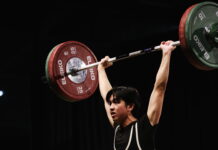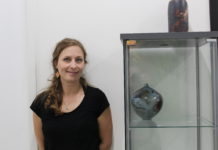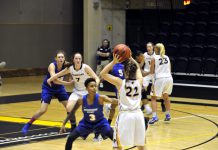An open letter calling for UW to implement more robust COVID-19 measures has picked up traction, receiving an endorsement from the World Health Network as well as a response from the university.
The letter was addressed to UW senior administration by the COVID Action, Response, and Equity (CARE) Coalition, a group made up of students, faculty, staff and alumni. It has garnered about 150 signatures so far, including UW Climate Justice Ecosystem, the UW QTPOC KW, and the School of Public Health Sciences Graduate Students’ Association.
Ryan Tennant is a member of the CARE Coalition and a UW student for about a decade, starting his undergraduate career in the biomedical engineering program. “Ultimately, we really believe that what the letter is asking for is reasonable safety measures during an ongoing pandemic of an airborne virus,” he said. “We really believe that the institution can step up and show that leadership, and could be a global model of what other institutions should do.”
The coalition is asking for improved communication about COVID-19, indoor air quality measures, accessibility on campus to rapid tests and N95 masks, ongoing monitoring and response to COVID-19 risk on campus, online options for in-person events and classes, and more.
Tennant pointed to COVID-19 related measures that other universities have taken on – for example, the University of Washington in Washington, U.S. and Yale University in Connecticut, U.S. provide high quality masks to students, while Monash University in Melbourne, Australia keeps an updated respiratory infections safety plan on their website.
Maya Adachi is another member of the coalition who started her master’s at UW in September 2023, with all in person classes. In one of her classes last semester, Adachi said someone came in with pneumonia, not wearing a mask, and was coughing throughout the entire class.
“I noticed that students and even professors would come in being visibly physically ill,” she said. “And that was a concern to me, because obviously, they were not taking precautions to keep themselves or the people around them safe.”
Adachi felt she would not be notified if someone in her class contracted COVID-19, because there is no contact tracing done.
“I am concerned that students especially feel a pressure to come into school and attend classes, especially when there are participation marks associated with their presence, and there may not be enough accommodations for students who either attend class virtually or miss a couple of classes until they’re fully recovered,” she said.
A response from a UW spokesperson said that the university has made decisions based on the most up-to-date data, evidence and recommendations from public health authorities.
“UWaterloo will continue to remind the community about the value of and availability of vaccinations as part of ongoing annual health promotion initiatives,” said the spokesperson, adding that boosters and appointments remain available through Campus Wellness. The pharmacy in SLC offers COVID-19 vaccines on a walk-in basis, while the Turnkey Desk offers free rapid antigen testing kits.
“Since the outbreak of the pandemic our community has found reliable information on our COVID-19 Information website. However, web traffic to our COVID-19 site has dropped dramatically over the last 12-18 months; our audiences online are no longer using those pages for information on the virus,” said the spokesperson, adding they are in the process of transitioning this information to other sites, such as Campus Wellness, Occupational Health and the Safety Office.
Since November 2020, every building has been retrofitted to accommodate MERV13 filters, as recommended by the American Society of Heating, Refrigeration and Air-Conditioning Engineers.
Some in-person events are offered in a hybrid format, including the President’s fora, town halls, lectures and symposia.
“As we continue to refine our communications efforts, UWaterloo has made readily available information for students to self-declare absences related to COVID-19, as well as where to seek help in obtaining accommodations due to illness if they need it. We remain steadfast in sharing our WatSEE framework to promote student thriving with a wellness-based approach,” the UW spokesperson said. “Together, we hope that these practices help ensure that students get the support they need if they are sick and have concerns about their academic standing. Anyone who has any concerns about falling behind can talk to their instructor or academic advisor.”































